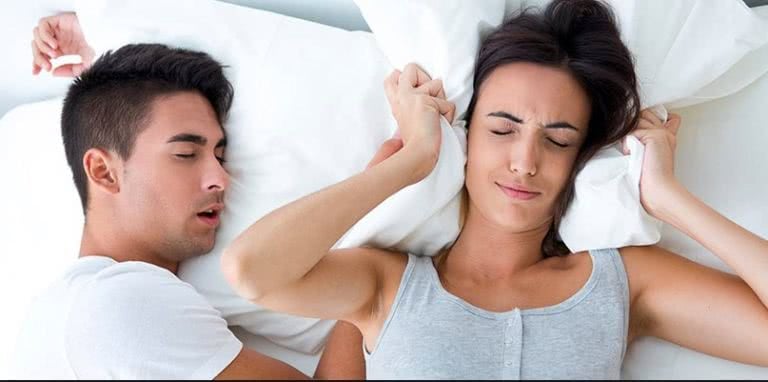Does your life partner kick you and prod you and try in vain to roll you on your side throughout the night because of your snoring? Do you feel tired and irritable after what you thought was a full night’s sleep? Do you ever wake up choking? (and not from your significant other trying to strangle you). If so, you could be suffering from sleep apnea.
Sleep apnea is a potentially serious sleep disorder in which breathing repeatedly stops and starts, disrupting it for short periods. This increases the risk of developing heart disease and a host of other annoying maladies.
There are 3 main types of sleep apnea, none of which are very sexy. They include Obstructive sleep apnea, which is the more common form that occurs when throat muscles relax. Central sleep apnea, which takes place when your brain doesn’t send proper signals to the muscles that control breathing. Stupid brain. And Complex sleep apnea syndrome, also known as treatment-emergent central sleep apnea, is when you’re lucky enough to have both obstructive sleep apnea and central sleep apnea. Sadly, two wrongs don’t make a right.
The most common signs and symptoms of obstructive and central sleep apneas include:
- Loud snoring
- Episodes in which you stop breathing during sleep
- Gasping for air during sleep
- Awakening with a dry mouth
- Morning headache
- Difficulty staying asleep (insomnia)
- Excessive daytime sleepiness (hypersomnia)
- Difficulty paying attention while awake
- Irritability
- Thumping, kicking and swift pillow blows to the head
It’s important to note that although loud snoring can indicate a potentially serious problem, not everyone who has sleep apnea snores. So, go sleep on that and see if it makes any sense.

When is snoring just snoring?
Snoring occurs when the flow of air through the mouth and nose is physically obstructed. A combination of factors can cause this, including: obstructed nasal airways, poor muscle tone in the throat and tongue, bulky throat tissue from being overweight, long soft palate and/or uvula: (the dangling tissue thingy in back of the mouth).
Snoring doesn’t discriminate, although it occurs more frequently in men and people who are overweight. And if your think your snoring will get better as you get older, you’re dreaming. Because snoring has a nasty tendency to worsen with age. So, if you think you need help, get it.

A veteran of 25+ years of sawing the proverbial night logs, my wife convinced/forced me to take an overnight sleep test to get to the bottom of my noise making. So, I begrudgingly checked into a sleep clinic to find out more. I was basically hooked up to hundreds of wires, loads of goo-laden electrodes and spied on round-the-clock by nocturnal European technicians. As I wait for the results to see if I do indeed have sleep apnea, I’m mulling over my many treatment options. These include CPAP therapy (Continuous Positive Airway Pressurisation) – pressurized air is pumped through a mask worn over your nose and mouth (it’s not as loud as snoring, but it does have consistent white noise); an annual expensive laser treatment to open up your pallet (and your wallet); and oral appliance therapy – basically an orthodontic retainer that goes over your teeth that holds your lower jaw forward to open the airway during sleep. None of these sound appealing, but it’s better than the alternative… sleeping in the guest bedroom with my needy cat.

When to get help with your snoring
Occasional snoring is usually not very serious and is mostly a nuisance for your bed partner. However, if you are a habitual snorer, you not only disrupt the sleep patterns of those close to you, but you also impair your own sleep quality. Medical assistance is often needed for habitual snorers (and their loved ones) to get a good night’s sleep. So, ask your doctor about any sleep problem that leaves you fatigued, sleepy and irritable. The sooner you do, the sooner you’ll both get a good night’s sleep.


































